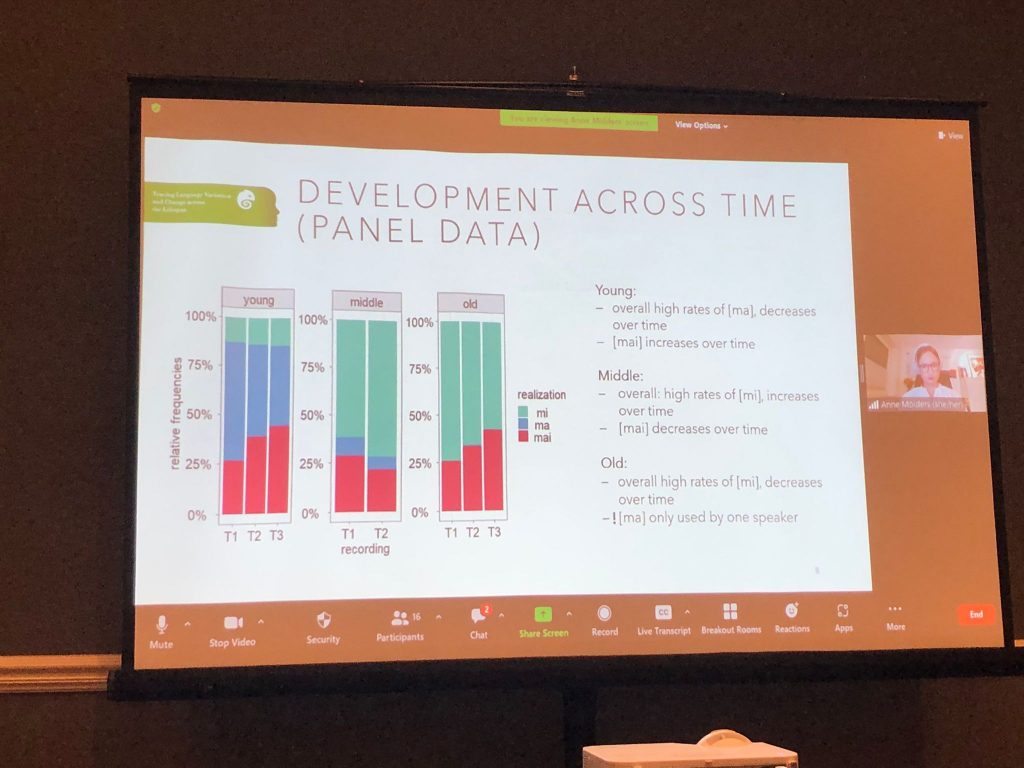New Ways of Analyzing Variation (NWAV) is an annual conference dedicated to research on sociolinguistic variation. This year, NWAV50 was hosted in San Jose and online by Stanford University. Some members of the Sociolab attended, and they also presented their own research on language change across the lifespan. We’ll share our research and experiences at NWAV50 below!
A premiere: Anne’s talk on first person possessive pronouns
Anne, who is a PhD student in the Sociolab, gave her first big solo conference talk! In the presentation called “A real-time investigation of intra-speaker malleability in the phonetic realization of the first-person possessive” she introduced the first results from her PhD research. Anne reported on a panel sample of 30 speakers from the North East of England and focused on the age groups between 20 and 60. She found that the type of linguistic pressure significantly influences the way in which speakers pronounce my: while teachers tend to orient towards the standard [mai] as they act as role models of the language for their pupils, speakers in the health care sector who are in frequent contact with patients tend to orient to the local [mi] because it carries covert prestige for them
A team effort on post-educator relaxation
James, the only lab member in physical attendance in San Jose, presented joined work by himself, Isabelle Buchstaller, Johanna Mechler, Lea Bauernfeind and Mirjam Eiswirth on the linguistic variable (ing), as in “speaking” versus “speakin’”. The authors find that most speakers from the North East of England prefer the alveolar realization, i.e., as in “speakin’”, over the velar variant, often also called “standard” form, as in “speaking”. Educators are an exception to the overall preference observed in the data, as they produce higher rates of the velar form while they are active teachers but they revert back to the alveolar variant once they retire from teaching. The authors call this effect “post-educator relaxation”.
Attending NWAV50 from Germany = confused biorhythms!
Watching NWAV50 was a ride – quite literally – as we heard a talk from a bus station with the Q&A delivered while boarding the bus, definitely a first for us. Another amazing first time experience: a plenary talk in ASL, go NWAV50!
A big thank you to the organizers and the attendees for this wonderful conference! We enjoyed presenting our research and engaging in worthwhile discussions. Until next time, NWAV!


